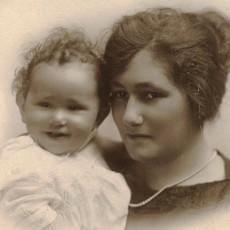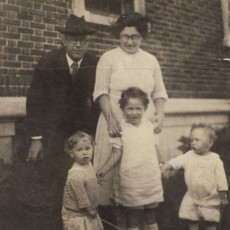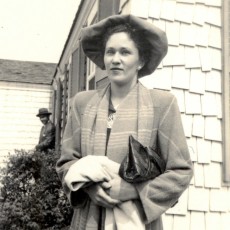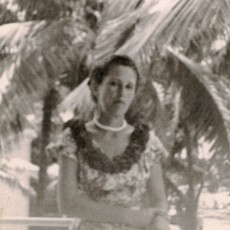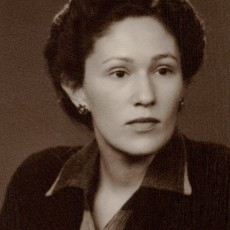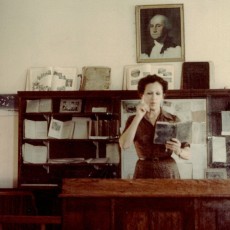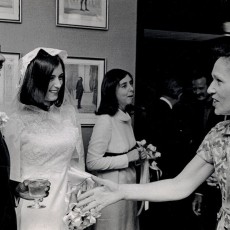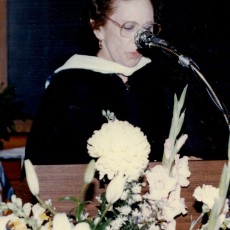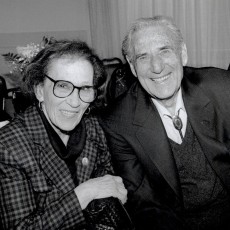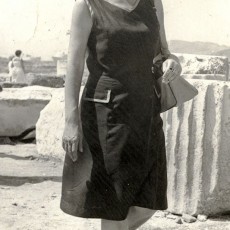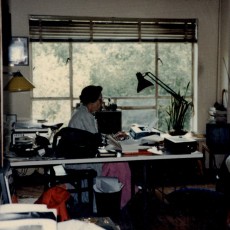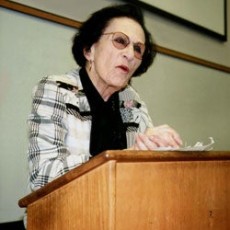Maxine Greene
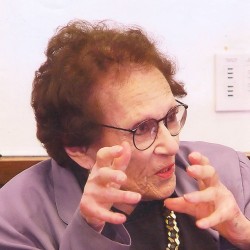
Maxine Greene is a professor emeritus and the Founder and Director of the Center for Social Imagination, the Arts and Education at Teachers College, Columbia University. She is a past president of the Philosophy of Education Society, the American Educational Studies Association, and the American Educational Research Association. Also a member of the National Academy of Education and the recipient of nine honorary degrees, Greene has lectured widely at universities and educational associations nationwide. An Educator of the Year at Columbia University and Ohio State University, Dr. Greene has authored six books. Her works include: The Public School and the Private Vision, Teacher as Stranger: Educational Philosophy in the Modern Age (awarded the 1974 Delta Gamma Kappa Award for Educational Book of the Year), and The Dialectic of Freedom. Dr. Greene has been at the forefront of educational philosophy for well over half a century.
For more information, visit Maxine Greene’s Website. To learn more about Maxine Greene from her family and friends, visit her Reflections. To view photographs from Maxine Greene’s personal collection, visit her Photo Gallery.
Suggested readingsVisit the video below to watch a short overview of the interview with Maxine Greene. Otherwise, see all three of the full interviews with Maxine Greene below.
Video Interviews with Maxine Greene:
Born and raised in Brooklyn, New York, with her parents and twin siblings, Dr. Maxine Greene, a self-proclaimed existentialist, is “always becoming.” After graduating from Barnard College and New York University, Greene began pursuing additional philosophy courses due to convenient scheduling that allowed her to both attend class and transport her young daughter to school each day. Fascinated by existentialism at a time when other philosophers ascribed to analytic and logical philosophies, Greene developed her interest in literature as an art form. Watch this clip to learn more about Dr. Greene’s view of the critical role of schools in communicating to children the excitement of imagination and her lifelong commitment to “wide-awakeness.”
A connoisseur of hip hop music and the matriarch of “Maxine’s Mafia,” Dr. Maxine Greene continues to teach courses on aesthetics for Teachers College, Columbia University and hold “Sunday Salons” to discuss literature all in her living room. Having inspired the creation of the High School of Arts, Imagination and Inquiry in Manhattan, New York, Greene’s dedication to experiential learning stems in part from her conviction that education is not based on a business model with results that can be measured. View this clip to learn more about Dr. Greene’s ideas for future publications and desire to expose the harmful effects of media on young people.
As a past president of the Philosophy of Education Society, American Educational Studies Association, and American Educational Research Association, Dr. Maxine Greene, the recipient of nine honorary degrees in addition to numerous other awards throughout her career, continuously works to “open up more and more people to the world of teaching.” Citing “passion” as her favorite word, Greene admits she would have enjoyed being a playwright or an actress if she were not a philosopher. Tune in to find out which inspirational figures Dr. Greene would take to dinner, hear about her dreams for the afterlife, and take note of her advice to aspiring researchers in the field of education.
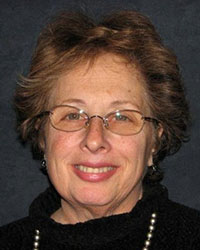
Dr. Jacqueline Ancess
Having first encountered Dr. Maxine Greene during a lecture on aesthetic education at the Lincoln Center Institute, Dr. Jacqueline Ancess has long considered Maxine her “spiritual mother.” Crediting Maxine with awaking a part of her, Jacqueline became a part of “Maxine’s Mafia,” sharing dinners, going to the theater, and developing a lifelong friendship. Through Maxine, Jacqueline met a colleague with whom she later founded a New York City public school in East Harlem. Maxine’s role on the school board and emphasis on the role of imagination shaped the development of the school which has thrived for over 30 years. Always charmed by Maxine’s humor and wit, Jacqueline recalls an incident in a Moscow subway as typifying both of Maxine’s characteristics. Intimidated by the depth of the escalator into the subway, Maxine was coaxed downward by two other travelers who sang “Hollywood” to encourage her forward. Whenever Maxine recalls this event with Jacqueline, she can be heard singing the refrain from the classic song. In addition to a memorable sense of humor, Jacqueline cites Maxine’s “crap detector” and ability to see the unfinished work that remains to be done as significant personal and professional accomplishments. In a word, Jacqueline insists that Maxine is truly “wide-awake.”

Dr. David Berliner
“Vital, energetic, clever, and relevant”-all words used by Dr. David Berliner to describe his transformed view of hip-hop music after a single encounter with Dr. Maxine Greene yet all are words that could just as readily apply to Maxine herself. Having met Maxine for the first time in the hall of Teachers College at Columbia University, David reluctantly accepted an invitation by Maxine to a hip-hop concert which she planned to attend. Completely “befuddled” by such a request from this “nice, cultured, intellectual older woman, the doyenne of educational aesthetics,” David recalls listening to this “creative, artistic” music more closely thereafter. In love with poetry and dance, Maxine revealed a world to David beyond the noise and grittiness of hip-hop by becoming “wide-awake.”
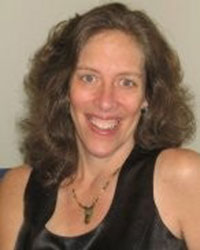
Dr. Michelle Fine
In writing to Dr. Maxine Greene regarding the countless lives she has touched through her awareness of the human need for acceptance, compassion for those who have suffered loss, and ability to connect with people of many visions, Dr. Michelle Fine describes Maxine as a “social movement with thousands of grandchildren.” As one of many descendents of Maxine’s movement, Michelle describes Maxine’s words as “balm for the soul, inspiration for a different tomorrow, and oxygen…where the air is dead.” Maxine’s belief in John Dewey’s description of “democracy as community always in the making” can be readily witnessed by her visits to the Bedford Hills Correctional Facility where she graciously shared her own story of personal loss while reading aloud to inmates. Maxine’s empathy for and keen awareness of the need for acceptance are quintessential of her character as a philosopher, teacher, and friend. Recalling her first meeting with Maxine, Michelle’s mother, Rose Fine, praised Maxine’s gracious and humble acknowledgement that they both “could teach each other a lot.” Readily aware of the possibilities for new beginnings in each conversation and encounter, Michelle recounts Maxine’s approach to life with much the same practical yet introspective philosophy as Maxine had since using the typewriter-“[W]hen I finish up a bottle of Wite-Out®, I know I am done.” With the age of the typewriter long past, the question of unfinished work remains. Maxine’s response to this question of “endings” is brilliant: “It is best to end with a beginning.”
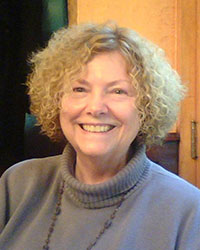
Dr. Janet Miller
Despite all Dr. Maxine Greene’s personal and professional accomplishments, long-time friend and colleague, Dr. Janet Miller, writes that Maxine’s humanity is the “gift to the world.” Also a faculty member at Teachers College, Columbia University, Janet first encountered Maxine as a graduate student at a curriculum theory conference in 1973. Later, Janet and Maxine developed a lifelong friendship whereby Janet wrote her dissertation on Maxine’s work with regards to issues of curriculum, curriculum theory, and the study of literature. More recently, the two “academic women who come from such differing backgrounds and academic disciplines” have recorded their conversations in hopes of writing a “collaborative” biography on Maxine. In any such work, Maxine’s wit; commitment to “fight the plagues” of indifference, ignorance, and apathy; and profession of “wide-awakeness” as an approach to living and teaching would rightfully reflect her contributions to aesthetic education, educational research, and the general advancement of humankind. Maxine’s over half century of work as a writer and teacher will certainly continue to echo over time with its discovery by each new generation.
Carole Saltz
When asked to “capture the essence and nature of Maxine,” Carole Saltz, Director of Teachers College Press at Columbia University, insists that attempting to capture any part of Dr. Maxine Greene would be “reductive” and rather we should strive to “try to catch up with her as best we can.” Describing her writings, teachings, and speaking as “brilliant and passionate,” Carole admires Maxine’s refusal to accept answers as black and white, searching always for the grey areas instead. By connecting art to education and the social imagination, Carole believes Maxine requires that we listen-truly listen-to many and “refuse to give in to the mechanistic meaning of the world.” Maxine, an author often publishing at the Teachers College Press but always a dear friend to Carole, rejects this mechanistic meaning through the simple companionship of shared dinners, laughter, and interpretation of literature as art. Maxine’s friendship has made Carole’s life “more textured and worthwhile” through her humor and “urgent and continuous questioning.” Perhaps, for many the thrill of the race as we scramble to keep up with Maxine is also part of our sustenance and nourishment in our quest for “wide-awakeness.”
Jean Shinefield
Whether in her room writing poetry and stories or camping in the Adirondack Mountains, Dr. Maxine Greene, according to her sister, Jean Shinefield, interpreted the world literally even as a young child, always seemed modest compared to the rest of the family, and performed brilliantly at Barnard College with straight A’s. Maxine, a twin sister to a pearl manufacturer and mother of two children, grew up in Brooklyn, New York, sharing with Jean her “fabulous memory” of events from their childhood throughout the years. More recently, Maxine “lives with her computer,” remaining immersed in her work which to Jean is the most important thing for an “amazing woman with an amazing story.”
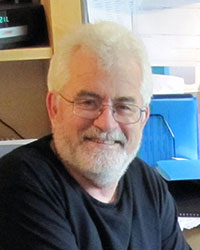
Dr. Graeme Sullivan
“Unstoppable curiosity”-Dr. Graeme Sullivan cites this character trait as the most significant personal or professional accomplishment for Dr. Maxine Greene, an educational philosopher argued to be one of the most influential in arts education in the United States today. Continuing to write that “her often-cited notion of ‘wide-awakeness’ is forever embodied in her own actions,” Graeme shares his fond recollections of years at Teachers College, Columbia University, spent in conversations with Maxine about their mutual interest in the imagination and creativity. Having encountered Maxine in a variety of capacities, as a keynote speaker, Lincoln Center Institute ‘professor in residence,’ and then colleague at Columbia, Graeme has witnessed firsthand the “extraordinary impact [Maxine’s work] had on LCI teaching artists and the participating teachers, many of whom were being introduced to the power of the artistic imagination by Maxine for the first time.” Teaching her aesthetics and education class at Columbia well beyond her 90th birthday, Maxine typifies her own notion of “wide-awakeness” through her actions, always “challenging us to see things anew.”
